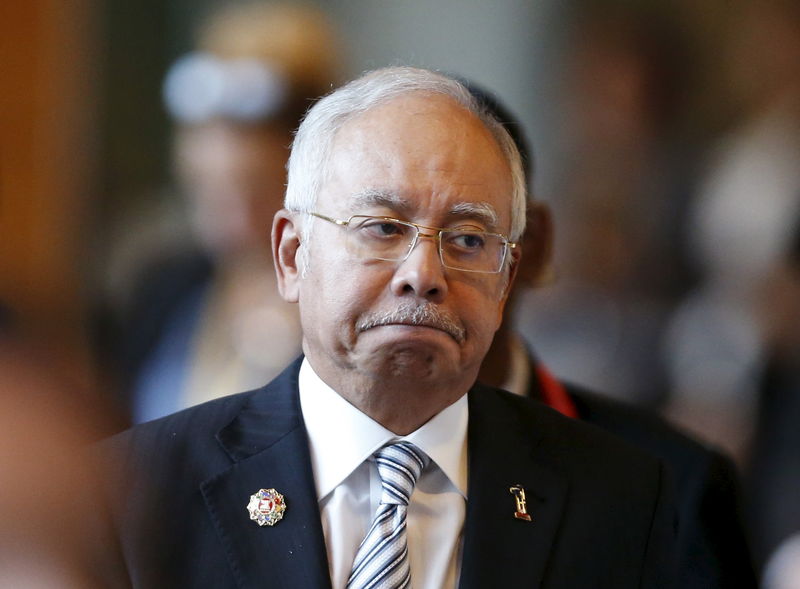KUALA LUMPUR (Reuters) - Malaysia's Prime Minister Najib Razak will give a statement to an anti-graft agency on Thursday over funds worth 2.6 billion ringgit (410 million pounds) that were transferred into his bank accounts, a source aware of the meeting said.
Najib is facing calls to step down over a graft scandal surrounding state fund 1Malaysia Development Berhad (1MDB) that erupted in July when the Wall Street Journal reported that investigators had found that funds had been transferred into Najib's bank accounts.
The source said the Malaysian Anti-Corruption Commission (MACC) would record a statement in connection with its investigation into graft allegations at 1MDB and its subsidiary, SRC International.
Najib had earlier made a commitment to give a statement to the anti-graft agency and his office is also expected to take queries on the matter in parliament later in the day.
Najib has denied wrongdoing or taking any money for personal gain. The MACC has already said the money was a political donation from an unidentified Middle Eastern benefactor.
The prime minister has complained that the investigation had caused "various accusations and slander".
A spokesman at the Prime Minister's Office did not confirm whether Najib would be questioned by the MACC on Thursday, but said he had made a commitment to give a statement.
Najib is chairman of the 1MDB advisory board. The fund is also being investigated by law enforcement agencies in Switzerland, Hong Kong and the United States, media and sources have said.
Opposition leaders and some establishment figures, including former Prime Minister Mahathir Mohamad, have called for Najib to resign over his alleged involvement in the scandal.
Critics also accuse the government of dragging its feet on the investigation and even Malaysia's royal rulers have called for a quick and transparent investigation.
At the end of August, tens of thousands of Malaysians rallied to call for Najib's resignation.
The controversy has battered Malaysian markets with the ringgit losing about a quarter of its value to become Asia's worst-performing currency this year.
